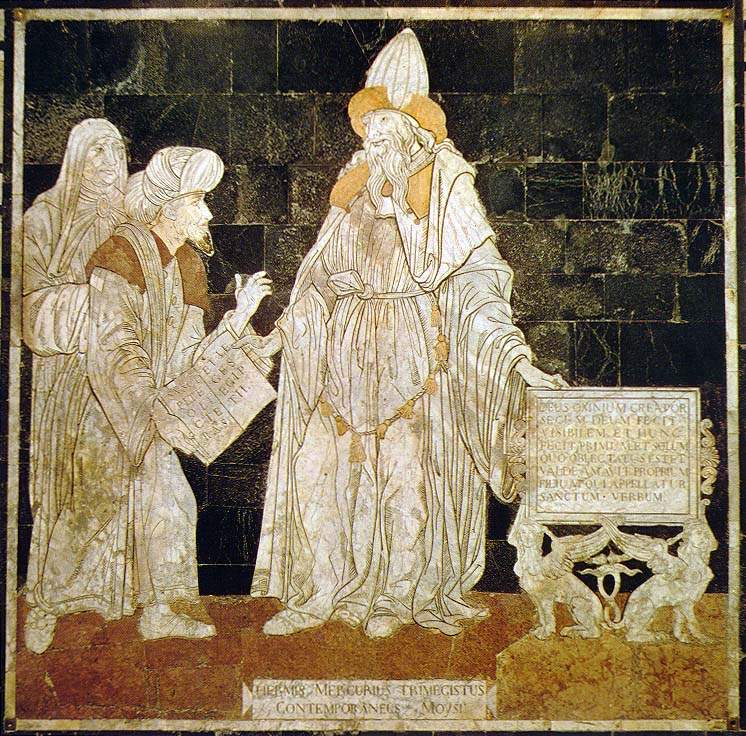The
legendary "Corpus Hermeticum" (CH) is a motley collection of
religious, philosophical and magical texts, composed during the Hellenistic
period in Egypt. The main character is Hermes Trismegistus, a mythical figure
based on the Greek god Hermes and his perceived Egyptian equivalent Thoth. In
Europe, the CH became widely known during the Renaissance. Today, it's mostly
associated with occultists and New Age believers.
The CH is highly eclectic. It resembles Plato's dialogue "Timaeus" and later Neo-Platonism and Gnosticism. There are similarities with Orphic hymns and the Sibylline oracles. Some scholars also believe that it contains authentic Egyptian influences. Many Christians have been mystified by the utterances of Hermes Trismegistus, no doubt because they occasionally resemble the creation story in the Book of Genesis or sound "monotheist". One Church Father, Lactantius, used the CH as a source of prophecies about Jesus Christ (!).
The last couple of decades, the New Age movement have made ideas similar to those of the CH part of popular culture. Due to this, the Hermetic message sounds pretty old hat. God is both transcendent-"monotheist" and immanent-"pantheist". The soul is immortal and somehow divine. The body is a prison for the soul, and souls are trapped in it because of desire for the world of matter. Ideas resembling reincarnation and karma are also taught. The main characters frequently get mystical visions and theophanies. The goal is to become deified.
Sounds familiar?
This book contains translations of Corpus Hermeticum I-XVIII and the Latin Asclepius. "Only" the more philosophical texts of the CH have been included. The more practical treatises on alchemy or astrology have been left out. The introduction and the notes are very scholarly and probably of less interest to more spiritual readers. The actual translation is only about 100 pages long, most of the book containing footnotes dealing with obscure issues of translation or parallels in other ancient literature. (The notes are almost esoteric!)
"Hermetica" is obviously intended for scholars, but might have some interest for the general reader as well, provided he or she is interested in alternative forms of spirituality, which often seem to resemble the ideas expounded by the Thrice Great Hermes.

No comments:
Post a Comment